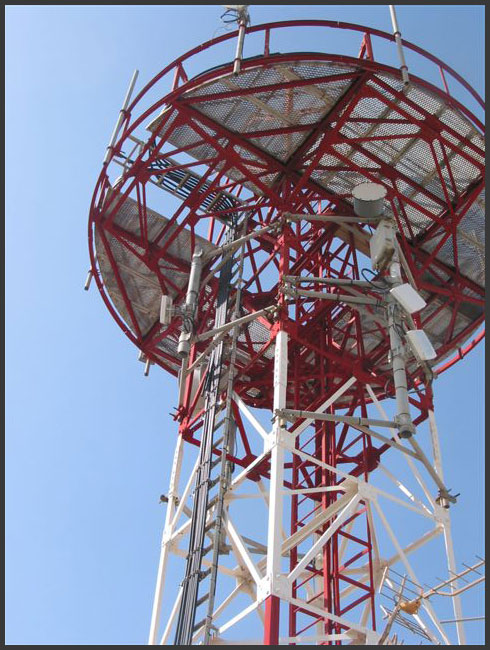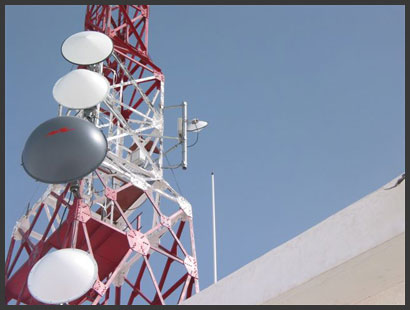Lebanon Telecom Market: Telecommunication Regulatory Authority
The Lebanese telecom market today has seven licensed Wireless Service providers, offering a wide range of technologies, including WiMax and others. We also have two mobile operators as you know and they’re in the process of upgrading their networks.
Lebanon was ranked in 82nd place out of 150 countries worldwide and 9th among 19 Arab countries. Lebanon was one of 47 countries with medium ICT development. What can this position be attributed to?
This position means that there’s great potential for the development of telecom and information technologies. It means that we have some way to go in terms of expanding these services. It also means for a country with the economic makeup of Lebanon, that is based on primarily on services – knowledge industries, health care, fashion and media, education, financial services, to name but a few- that the potential for overtaking other countries in the region and elsewhere is tremendous. The opportunity is there and we must absolutely not miss it.
How important was the role TRA played in this rating ?

The ratings have a certain time lag, so the ratings have more to do with 2008 and we had been in operation for less than a year. So we can’t claim much credit for that rating. However, we’re more concerned about the next rating and how we appear in future ratings. We are much more interested in enabling the telecom sector to deliver services, and for various entrepreneurs and companies to provide services and applications that will not only increase the penetration and usage of ICT but also reflect the spread of education, and the improvement of the environment for electronic communications.
Do you see Lebanon as a regional hub for ICT technologies ?
By definition, the internet world and the ICT world know no hub. So my ambition for Lebanon is not to become a hub. My ambition for Lebanon would be for it to become a magnet attracting investors and companies to set up business in Lebanon. The concept of a hub is out of place in a knowledge economy. It has been overtaken by the network economy that we live in today. We are ideally placed to benefit in a network economy because the Lebanese, by nature, are networkers. Historically we have been linking various parts of the world through trade, cultural exchange and so on.
Where do you see opportunities for investors in the telecom or ICT sectors in Lebanon ?
The potential for investors is tremendous. Most obvious and closest to the work we do as a telecom regulator is broadband access, the potential for which is in the hundreds of millions of dollars. It is a potential that I hope would be open to the private sector, even though getting universal broadband access will, most likely, require some public support. To really make a significant impact, the public sector has to be committed. I would like to see a clear commitment by the government to opening the telecom sector to competition. This would be their greatest contribution. followed by that would be a commitment to seeing that broadband technologies are brought to students and healthcare institutions, making sure that the remote areas of Lebanon are also connected. It all starts with a vision of a liberalized competitive telecom sector and a commitment to a telecommunications policy whereby all the agencies of the government, and the stakeholders in the public and private sector work together to see to it that we have the best telecom market. We also have the potential to be innovators in services and applications, be it online teaching, tele-medicine, online software for banks, or a new trading instrument online. Because we have vibrant industries in Lebanon I do see the potential for services and applications being exported worldwide using the broadband networks that will be put in place.
We do face a number of challenges. First, we are at the early stages of liberalization. The incumbent –in this case, the government –is a very big stakeholder, and is not an easy and willing partner for deregulation. The flip side is that investors are coming in on the ground floor of liberalization and not at the tail end. The second challenge has to do with the somewhat old rules and regulations that are not appropriate for the 21st century. We’re working with Parliament and various ministries to upgrade all of that. Third, is the increased dependence of the government on telecom revenues. That partly explains the reluctance of some in the government to forge ahead with liberalization.

When do you think the sector will be liberalized ?
The TRAis ready for it anytime and I don’t think we should delay this anymore. The economic benefits of competition are such that they more than outweighed the short term fiscal benefits in terms of revenues to the treasury. I don’t think that there is an economic or even a financial case for delaying liberalization. I think it’s a question of this realization to sink in and for the decision makers to really understand what’s at stake.
In what ways do you cooperate on the international level ?
Lebanon has been a founding member of the Arab and Europe-Mediterranean Regulators’ Networks and is very active in the International Telecommunications Union (ITU). There are also the more specialized venues that we are active in. We are also active in informal types of consultations and exchanges of information. There are mechanisms underway to have ongoing information sharing with some regulators in Europe.
TRA of Lebanon granted interim licenses to three Lebanese companies. Can you tell us more about your licensing procedures ?
The Lebanese telecom market today has seven licensed Wireless Service providers, offering a wide range of technologies, including WiMax and others. We also have two mobile operators as you know and they’re in the process of upgrading their networks. There is a lot of movement, efforts and investment going into the market today and I think we will see the actual fruits of that over the next few months.
What is your vision for ICT development in Lebanon ?
My vision is for a country that is connected from end to end. Within anywhere between 5 to 10 years we can realistically expect to have broadband connectivity to most parts of the country and to every student and professional in Lebanon, and to have the entire educational system adapted to this connected world, being able to provide a lot of the advice, teaching and services online. The vision is one where we not only have the leading edge infrastructure and networks but also state of the art implementation of services and applications being provided, including government applications. Geography in Lebanon allows for a high degree of economies of scale. I think it’s very important to take advantage of all of that. In five years, Lebanon can catch up to other countries in the region and even claim a leading position.